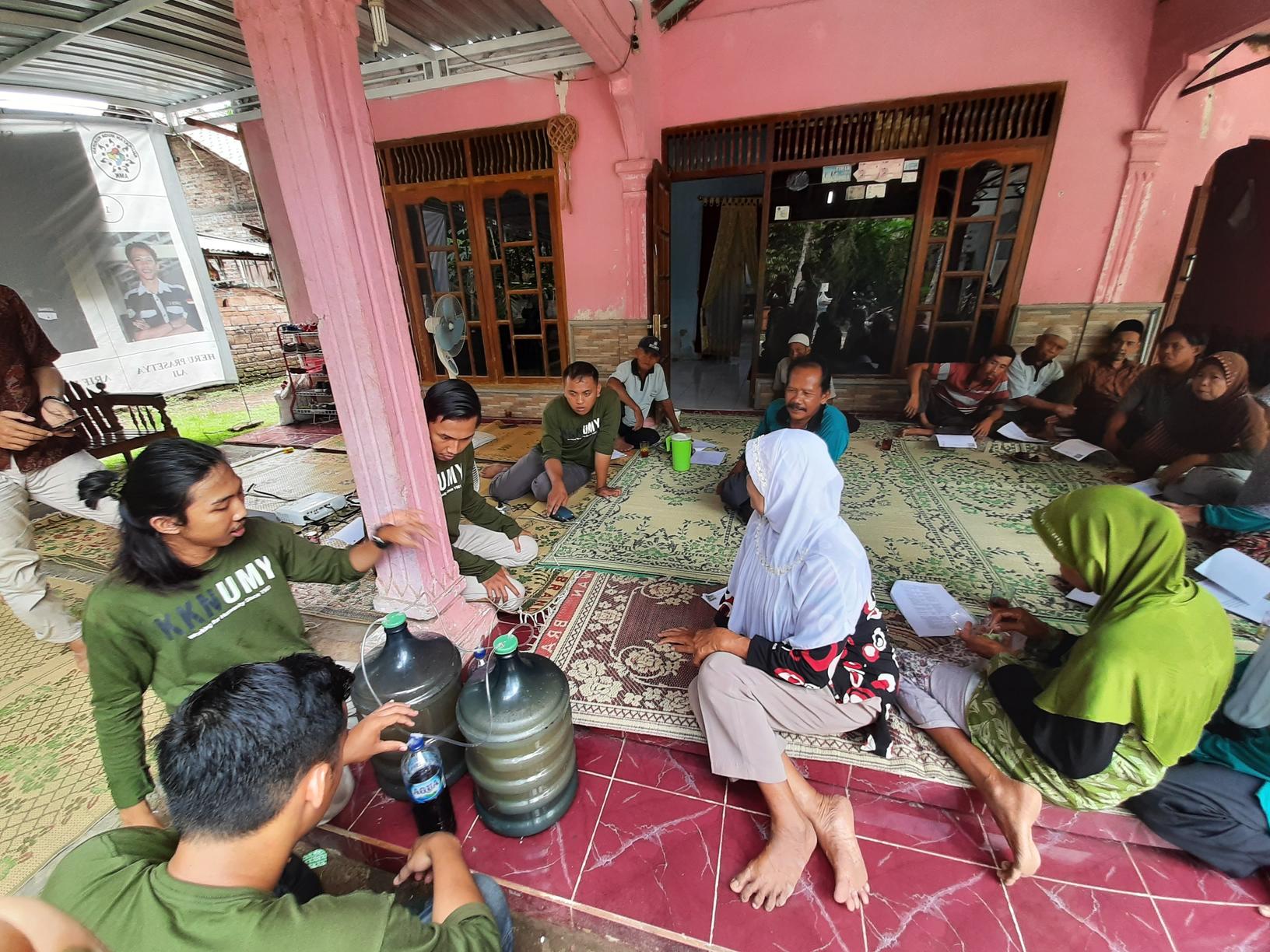
A lot of farmers in Koripan Hamlet depend on chemical fertilizers or pesticides to plant crops such as rice, horticulture, and tree crops. This is the motivation of is behind the program created by the Universitas Muhammadiyah Yogyakarta Thematic Community Service (KKN UMY) Group 022, where the 9 students aim to eliminate dependence on fertilizer in Koripan Hamlet, Poncosari Village, Bantul, Special Region of Yogyakarta. This program aims to introduce safe methods of treatment for plants and the environment, namely the use of PGPR (PLANT GROWTH PROMOTING RHIZOBACTERIA) to the Ngundi Mulyo Farmer Group in Koripan Hamlet which was held on Thursday (01/23).
The coordinator of the PGPR socialization and training activities, Muhammad Fauzi Andriyanto mentions the importance of using PGPR, especially to improve soil that has been exposed to chemical fertilizers and pesticides. “PGPR is a biological agency that can be used to trigger plant growth, prevent and control plant-disturbing organisms (OPT), and repair soils that often use factory-made fertilizers or pesticides,” said Fauzi.
This program consists of a series of stages. The first stage begins with a socialization session regarding PGPR. This program was followed by training in making PGPR tools. The program ends with monitoring the use of PGPR. The mentoring stage was carried out at week 4. This is because the PGPR tool itself must go through a 14-day fermentation process in order to reach the specified standards. From the socialization and training on Thursday (01/23/2020), the residents of the Dusun Koripan and members of the Ngudi Mulyo Farmer Group looked interested and enthusiastic to use the PGPR immediately because there have been presented many findings of faster-growing plants and fewer pest attacks.
The main ingredients needed to create PGPR are bamboo roots and bamboo shoots. Bacteria contained in both materials will be reproduced and purified in a gallon containing several supporting materials, including boiled water, leri water (rice washing water), whiting, shrimp paste, and refined sugar and an aerator. The process required 14 working days so that it can be said to be successful and for the crop to attain the best quality. The indicator of PGPR’s success will be seen from the change in color and aroma that resembles rice wine. Using PGPR on plants is relatively easy to do. It is applied by splashing a dose of the PGPR liquid according to the rice plants, horticultural crops, and perennials. Application of PGPR is recommended in the morning before 09.00 and in the afternoon after 15.00.
“It seems that the use of PGPR can be interesting to be tried and applied in the Koripan Hamlet, especially because the presentation of crop results using PGPR has good quality. I hope that the pests that are currently still affecting the surrounding Srambat area can no longer be a problem for us,” said the representative of the Ngundi Mulyo Farmers Group, Khomi.
The introduction of plant care through PGPR by KKN UMY Group 022 is expected to reduce the use of chemical fertilizers or pesticides. What’s more, the materials needed to create PGPR are relatively cheap and easy to get around the house. Thus, the ultimate goal of introducing PGPR to Ngudi Mulyo Koripan Farmer Group is to change the mindset that depends on chemical pesticides to change to a natural treatment method using biological agents, namely the use of PGPR. (hbb)





